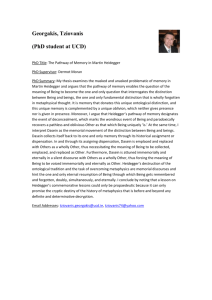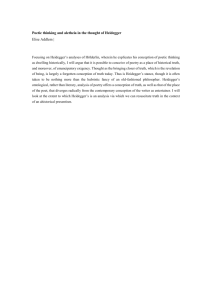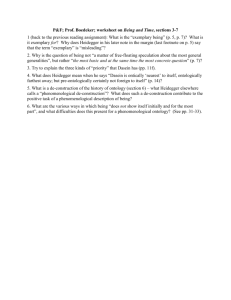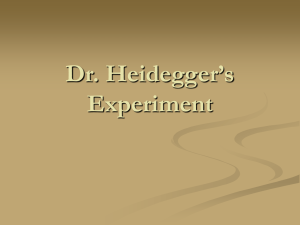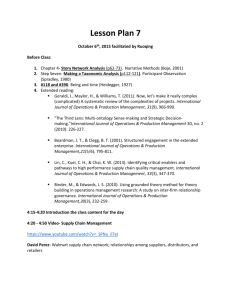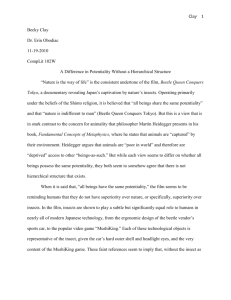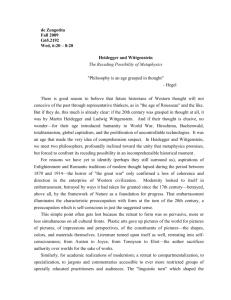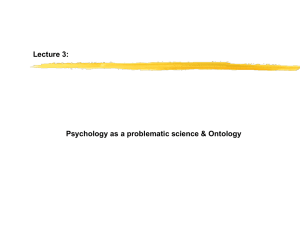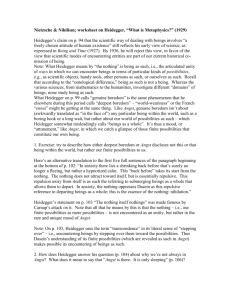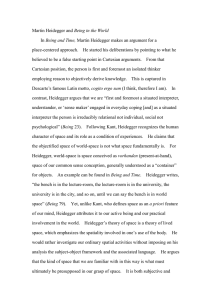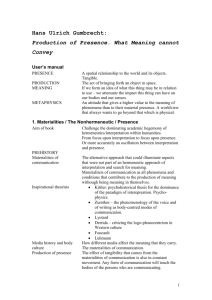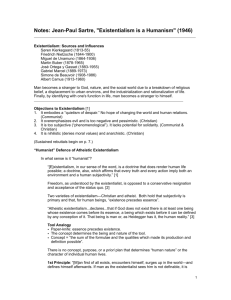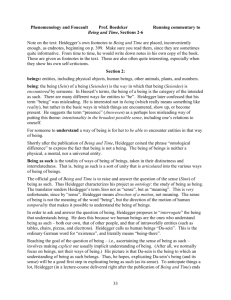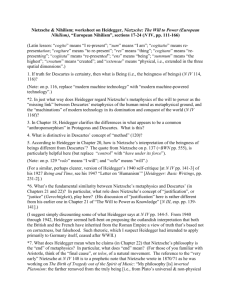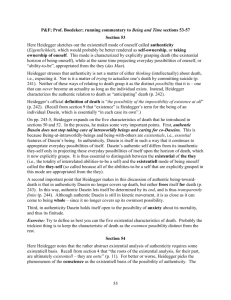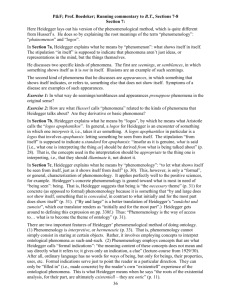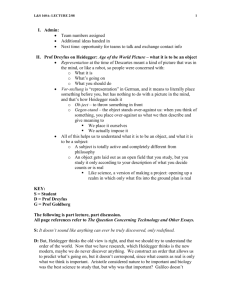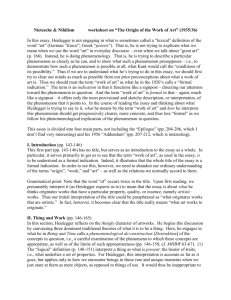Lecture 43 (21 March) -- Heidegger`s "Letter on Humanism"
advertisement
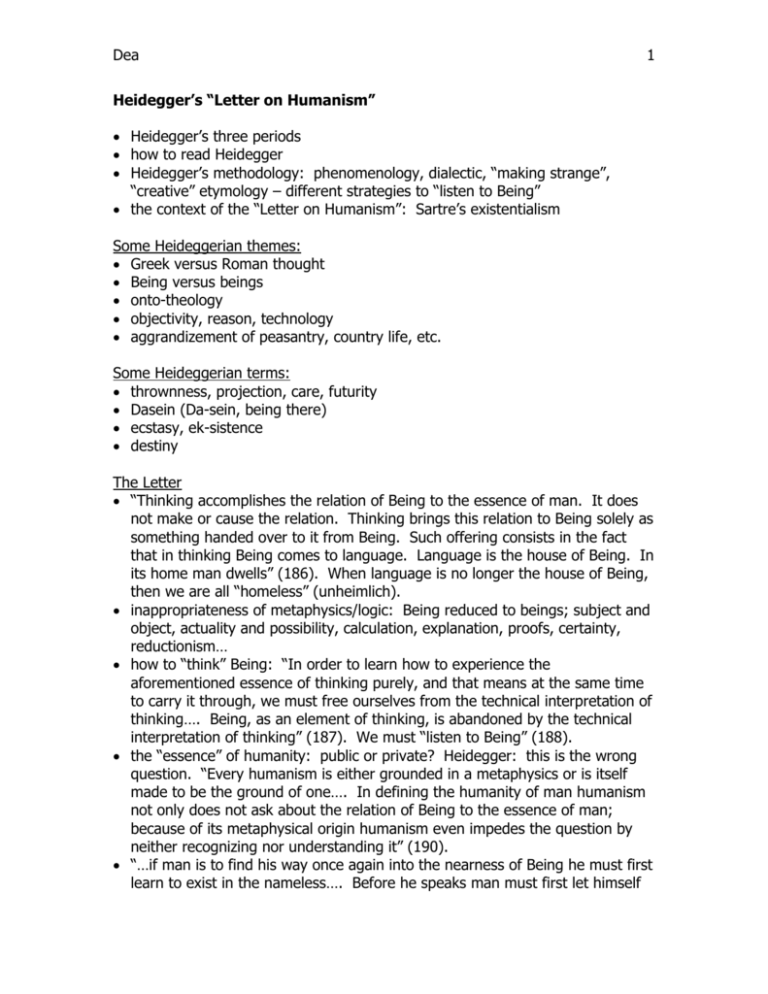
Dea 1 Heidegger’s “Letter on Humanism” Heidegger’s three periods how to read Heidegger Heidegger’s methodology: phenomenology, dialectic, “making strange”, “creative” etymology – different strategies to “listen to Being” the context of the “Letter on Humanism”: Sartre’s existentialism Some Heideggerian themes: Greek versus Roman thought Being versus beings onto-theology objectivity, reason, technology aggrandizement of peasantry, country life, etc. Some Heideggerian terms: thrownness, projection, care, futurity Dasein (Da-sein, being there) ecstasy, ek-sistence destiny The Letter “Thinking accomplishes the relation of Being to the essence of man. It does not make or cause the relation. Thinking brings this relation to Being solely as something handed over to it from Being. Such offering consists in the fact that in thinking Being comes to language. Language is the house of Being. In its home man dwells” (186). When language is no longer the house of Being, then we are all “homeless” (unheimlich). inappropriateness of metaphysics/logic: Being reduced to beings; subject and object, actuality and possibility, calculation, explanation, proofs, certainty, reductionism… how to “think” Being: “In order to learn how to experience the aforementioned essence of thinking purely, and that means at the same time to carry it through, we must free ourselves from the technical interpretation of thinking…. Being, as an element of thinking, is abandoned by the technical interpretation of thinking” (187). We must “listen to Being” (188). the “essence” of humanity: public or private? Heidegger: this is the wrong question. “Every humanism is either grounded in a metaphysics or is itself made to be the ground of one…. In defining the humanity of man humanism not only does not ask about the relation of Being to the essence of man; because of its metaphysical origin humanism even impedes the question by neither recognizing nor understanding it” (190). “…if man is to find his way once again into the nearness of Being he must first learn to exist in the nameless…. Before he speaks man must first let himself Dea 2 be claimed again by Being, taking the risk that under this claim he will seldom have much to say. Only thus will the preciousness of its essence be once more bestowed upon the word, and upon man a home for dwelling in the truth of Being” (189). the proper question of Being and of the Being of humans is not a taxonomic/classificatory one (as traditional metaphysics assumes), but an eksistential one – human beings as Dasein. The unique way that Dasein “stands out” in the lighting of Being. Why Heidegger isn’t an existentialist: What’s wrong with Sartre’s slogan (existence precedes essence)? For Heidegger, it is still too metaphysical, and too anthropological. It lets the question of Being stop at human existence. However, our ek-sistence is what allows us to glimpse Being (versus beings); this is where thinking begins, not where it ends. The human being as shepherd of Being, rather than master of beings “gains the essential poverty of the shepherd, whose dignity consists in being called by Being itself into the preservation of Being’s truth” (197). “What is strange in the thinking of Being is its simplicity. Precisely this keeps us from it” (198). How do we understand something so simple? Perhaps through art, rather than science? Poetry as “rigor of meditation, carefulness in saying, frugality with words” (199). An example of this: “With its saying, thinking lays inconspicuous furrows in language. They are still more inconspicuous than the furrows that the farmer, slow of step, draws through the field” (199).
